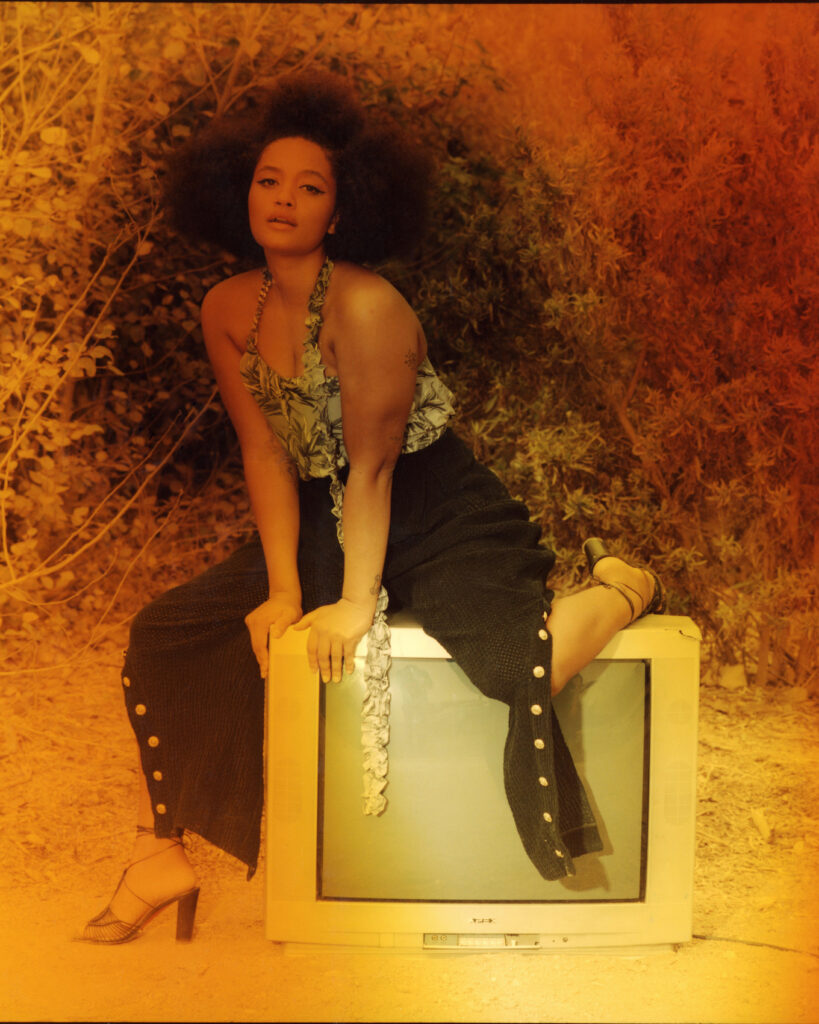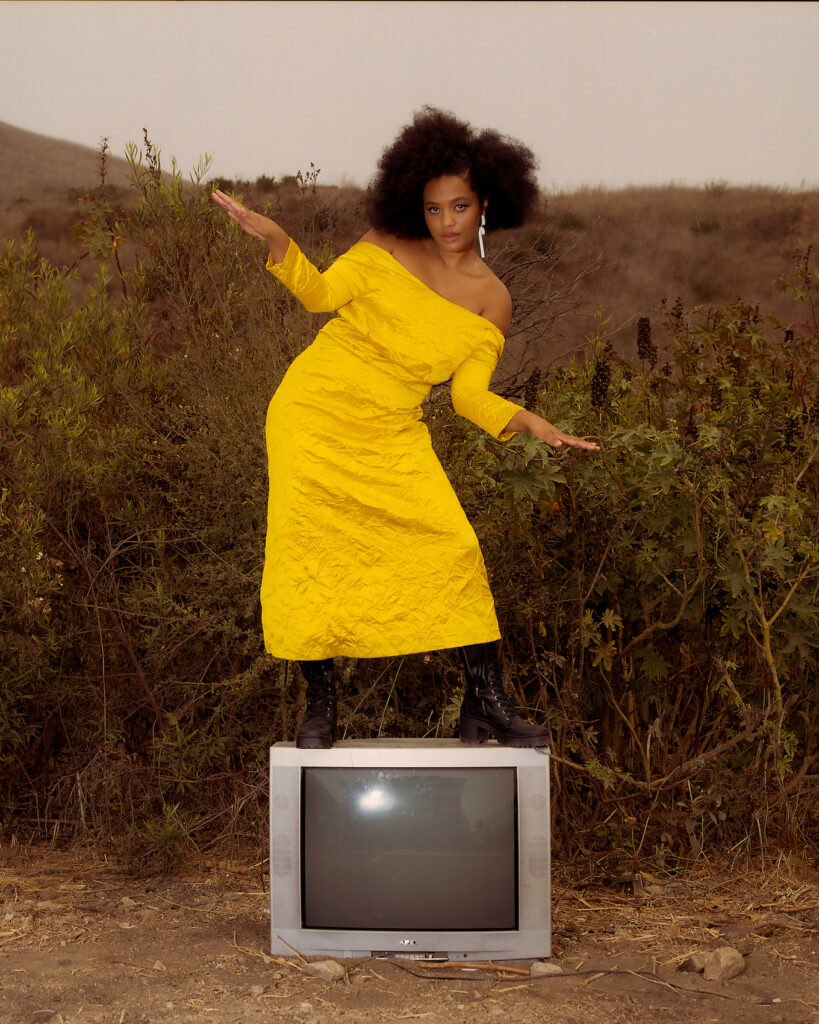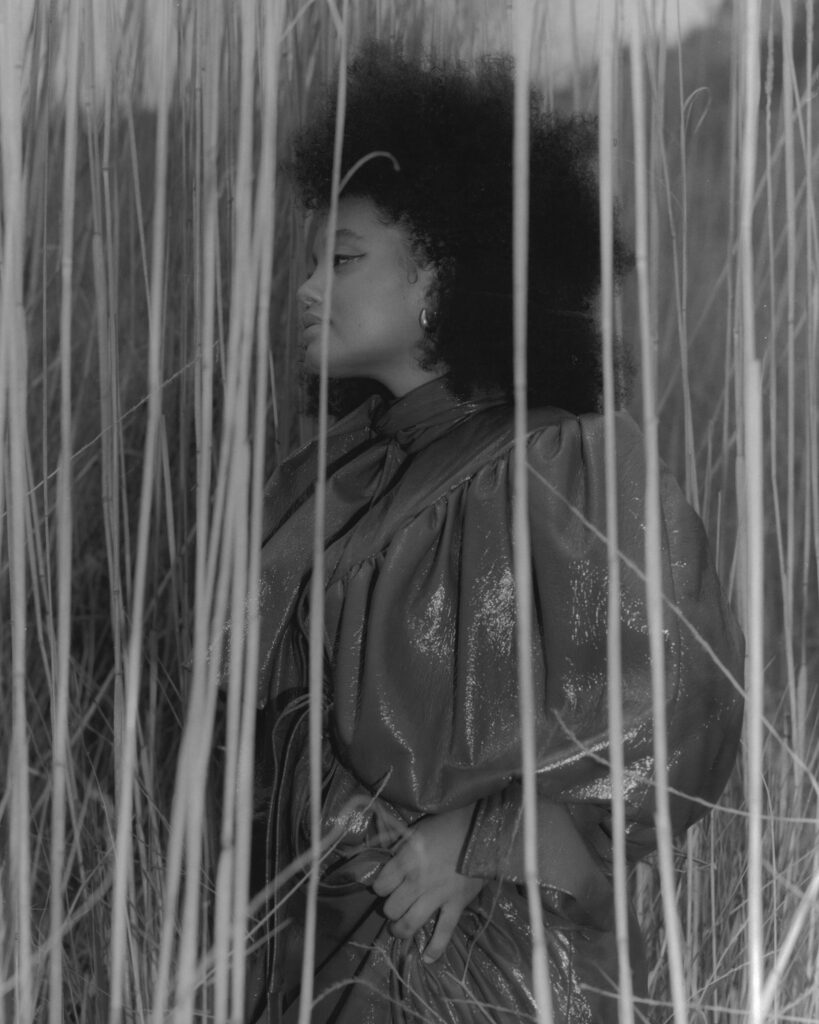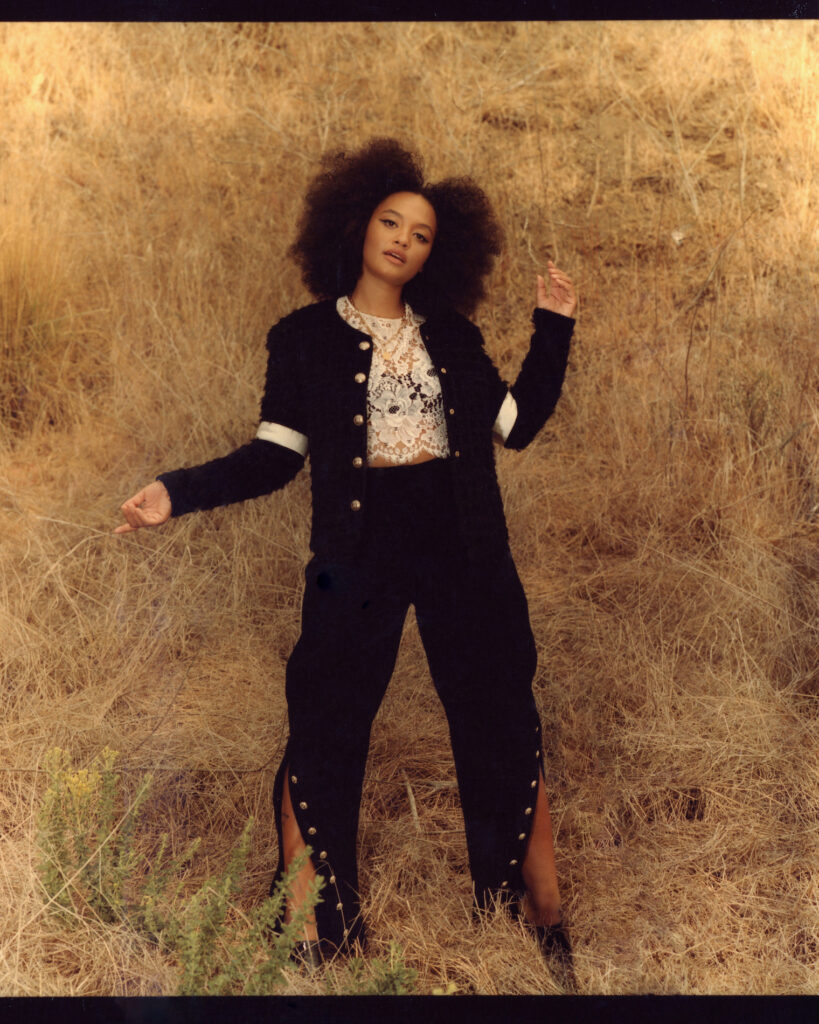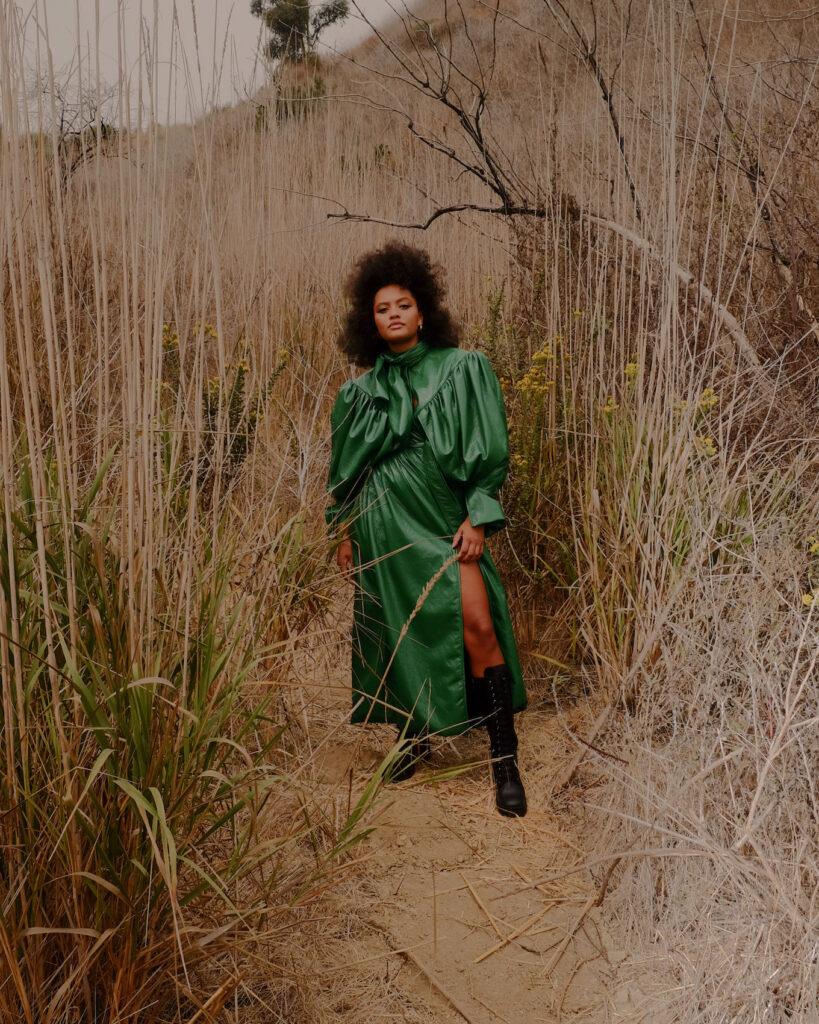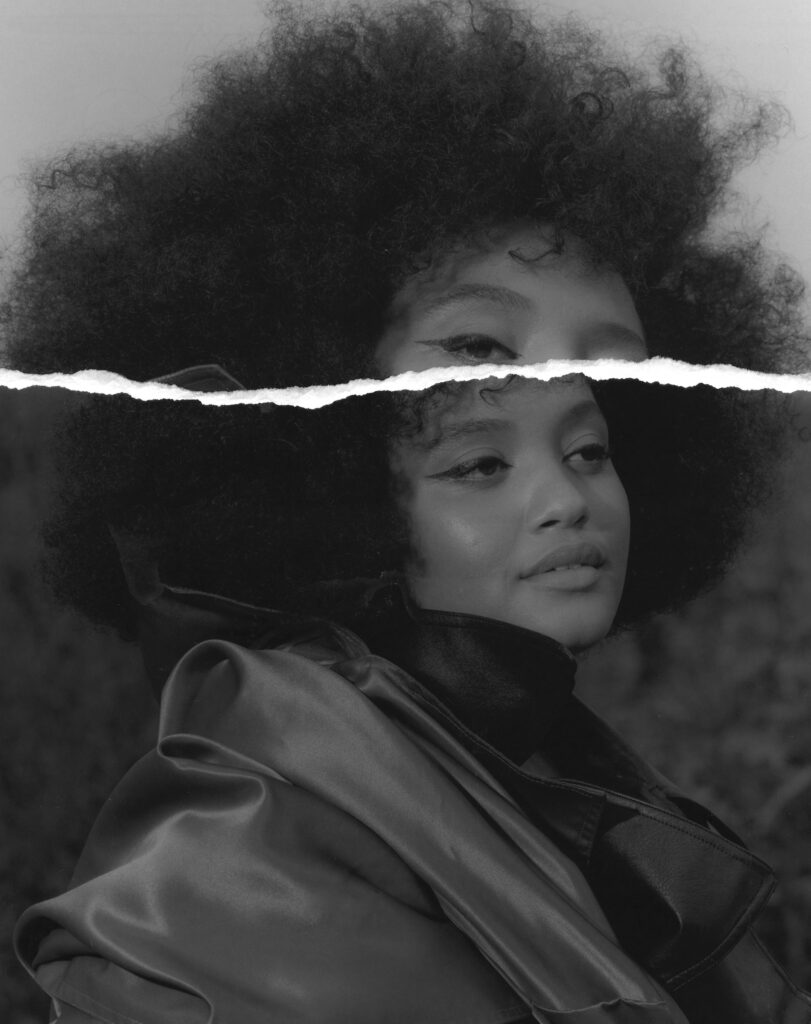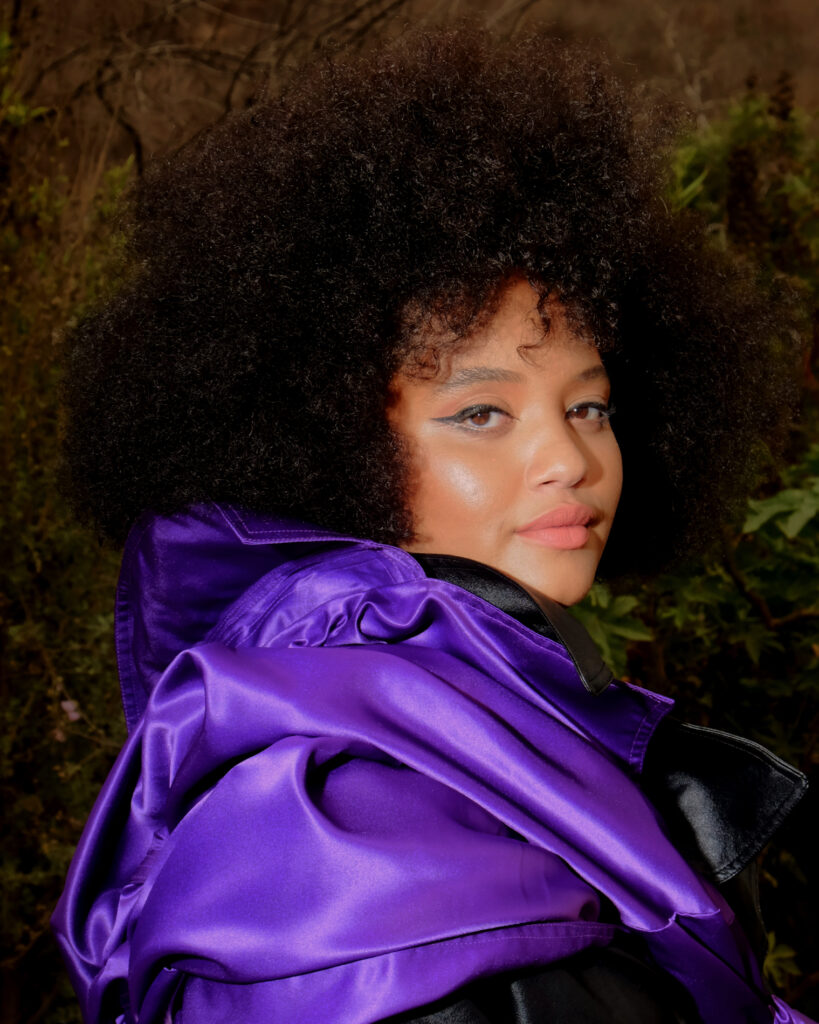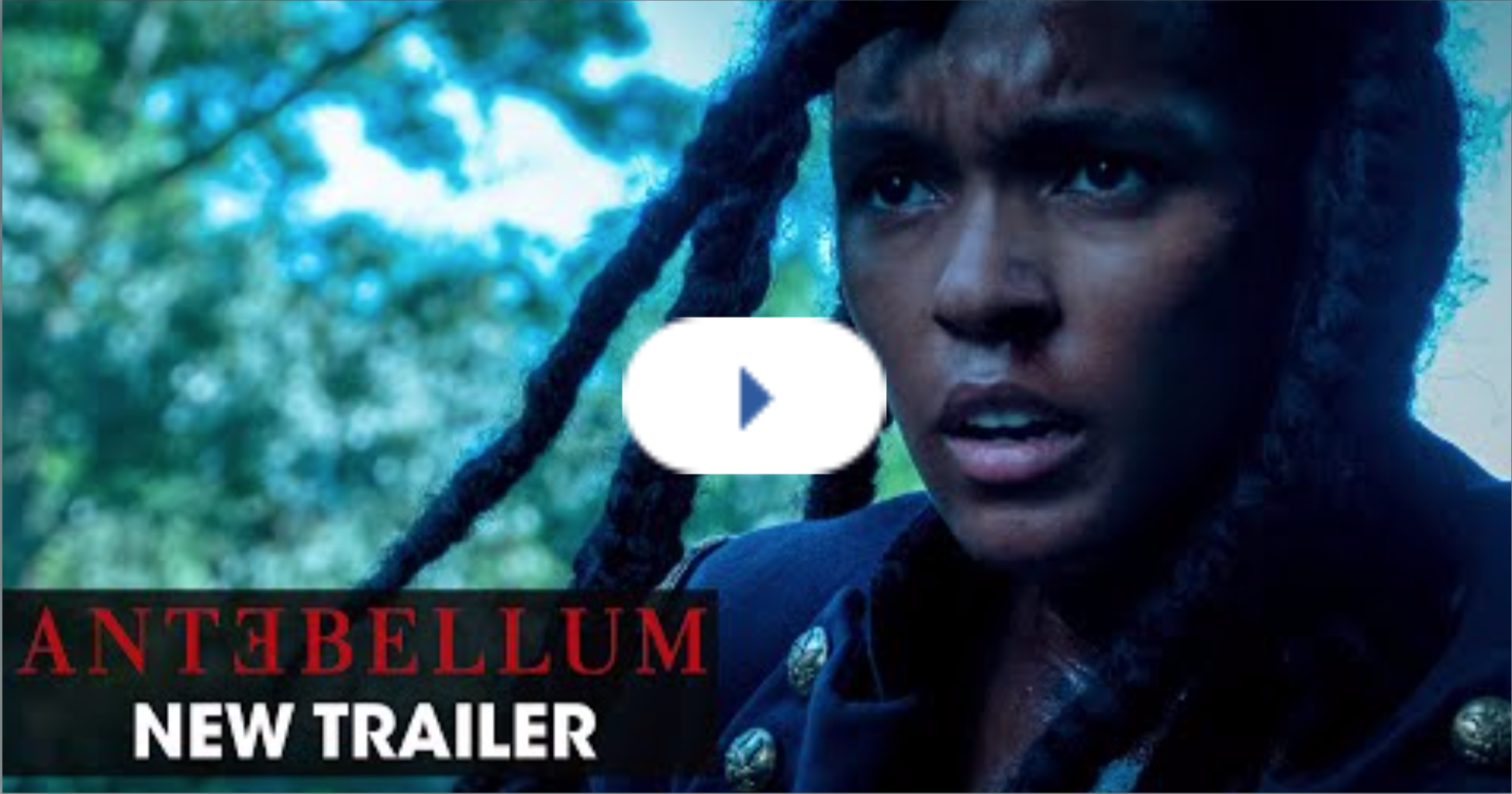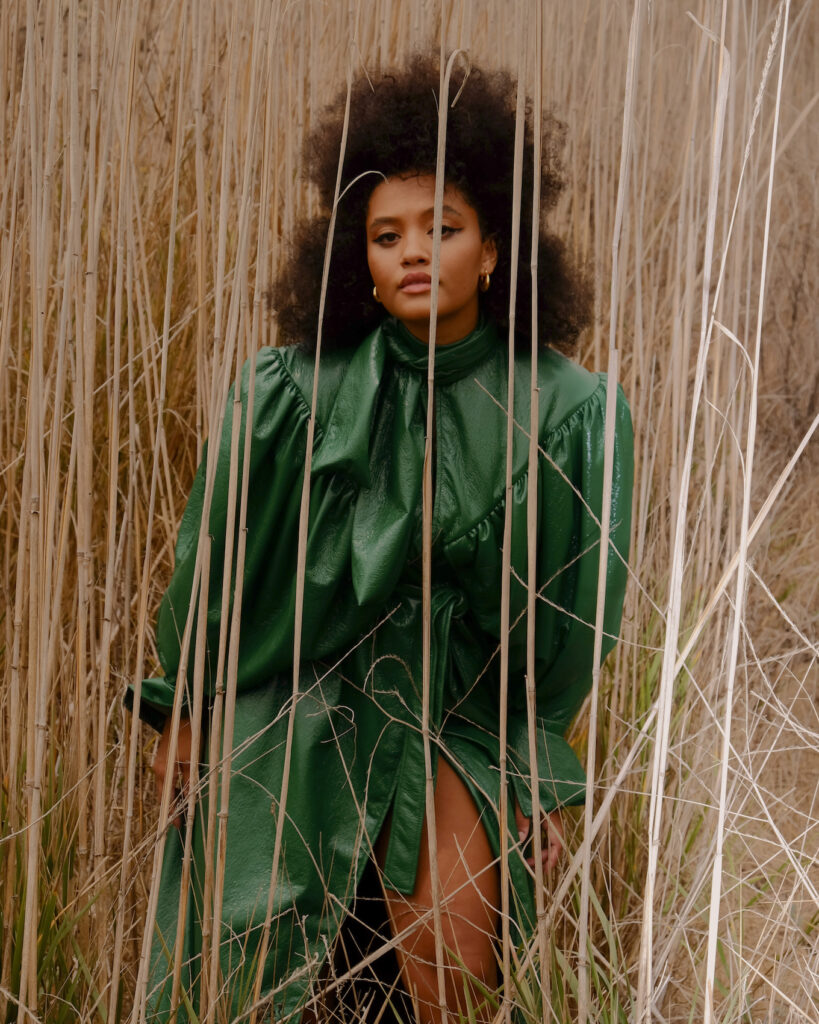
KIERSEY CLEMONS
In
Film
“Antebellum”
When I first saw Kiersey Clemons in Joey Soloway’s Transparent, bringing ease and authority to her role as Bianca, it was clear this was a being who was well centered in their craft. Kiersey has won acclaim playing gay women in Joe Swanberg’s Easy and the film Hearts Beat Loud, but as an openly queer actor, she has been careful not to be typecast. This latest role is proof of that: her breakthrough – and heartbreaking – performance as the enslaved Julia in Antebellum. Kiersey – who will soon be running shows, that’s my prediction – was kind enough to find time in her busy schedule to talk with me for ContentMode.
Your role is heartbreaking but it’s pivotal in motivating the lead character (phenomenal Janelle Monáe) to action. What were the challenges of making something so devastating real for an audience?
It’s always a challenge to take something from a page and bring it to life due to interpretation. The responsibility is what weighed on me this time around. My intent wasn’t to necessarily make it devastating. I wanted folks to feel like they know and understand Julia and her motives in the little amount of time we spend with her. I find it enthralling to play characters that say out loud what the audience is thinking. Most likely that voice of the audience is a supporting character, so your time on stage to express the character’s desires and needs isn’t a lot, but I think that’s what makes it my favorite. It’s like juicing an apple with your hands.
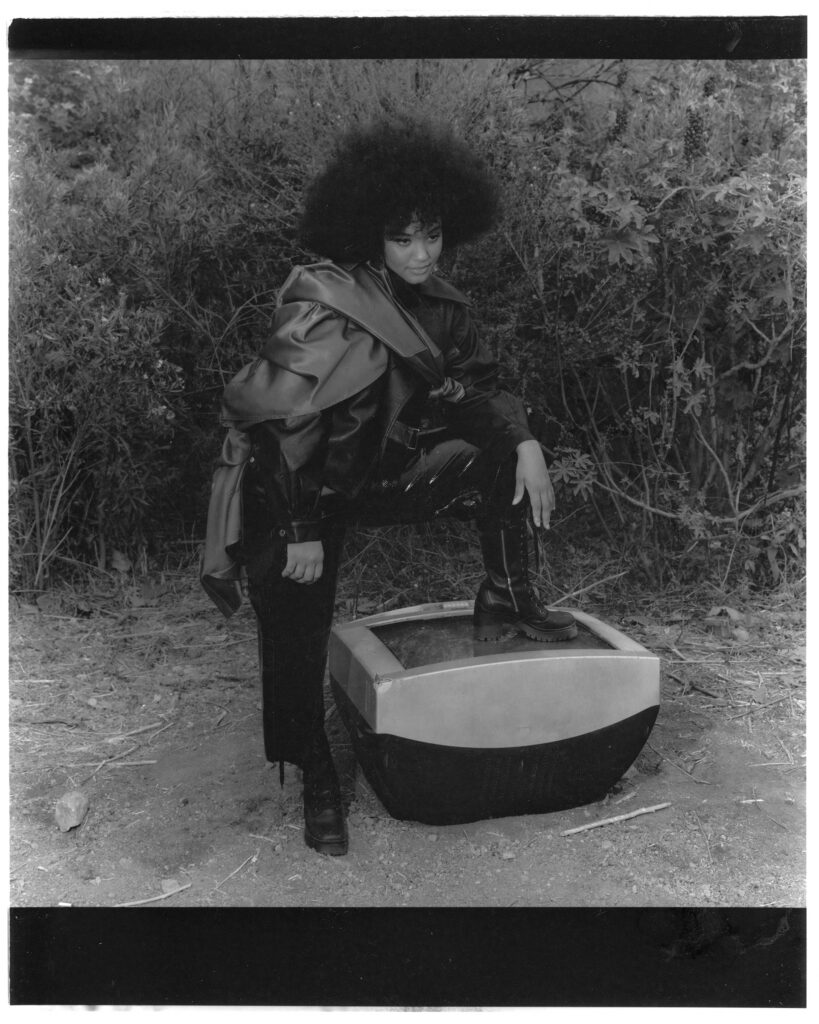
Antebellum forces American audiences to recognize their past, confronting them with images of the atrocities of slavery. What kind of effect do you hope this film will have in these highly polarized and increasingly radicalized times?
There are so many illusions right now, and humans are smarter than to believe the illusion. We can see through things, we have gut instinct. I hope people walk away from this movie asking themselves how they can break themselves out of ridiculous beliefs and others. We have to go beyond social media and cutting off family members you disagree with. There has to be active work and conversation taking place in your home, your workplace, everywhere. We have to integrate unlearning so much anti-blackness in our day-to-day, considering it’s been embedded in every single one of us.
Our media are flooded with news images of black men being brutalized by white police in this country, but we are shown very few images of the violence being inflicted upon black women, even though we know that brutality is going on. Was Antebellum created to address this imbalance by focusing on women being impacted by the horrors of slavery?
I think folks needing those videos to understand is very telling of one of the violences that black folks face, which is not being believed. Most of the themes in Antebellum are about black women and the violences we face, the ways in which we’re constantly demanded to do more, the ways in which we fight for folks that don’t fight for us. Black women give and give and give until we’re left with nothing. If they can suck us dry, they would. I don’t know who they are, but they’re out there. The life expectancy of a black trans woman is 35. We’re not double, but almost 6x more likely to die during a pregnancy or childbirth. We’re highly misdiagnosed in regards to mental illness. It’s set up so that just living is a death sentence. There’s obviously a threat. A power. I sneeringly think, what are yall so afraid of? Being a proud black woman shouldn’t be a target on your back and that’s one of the scarier parts of the film to me, that Janelle’s character Veronica’s pride was what threatened these people so much, they hated her for it. They thought, how dare she.
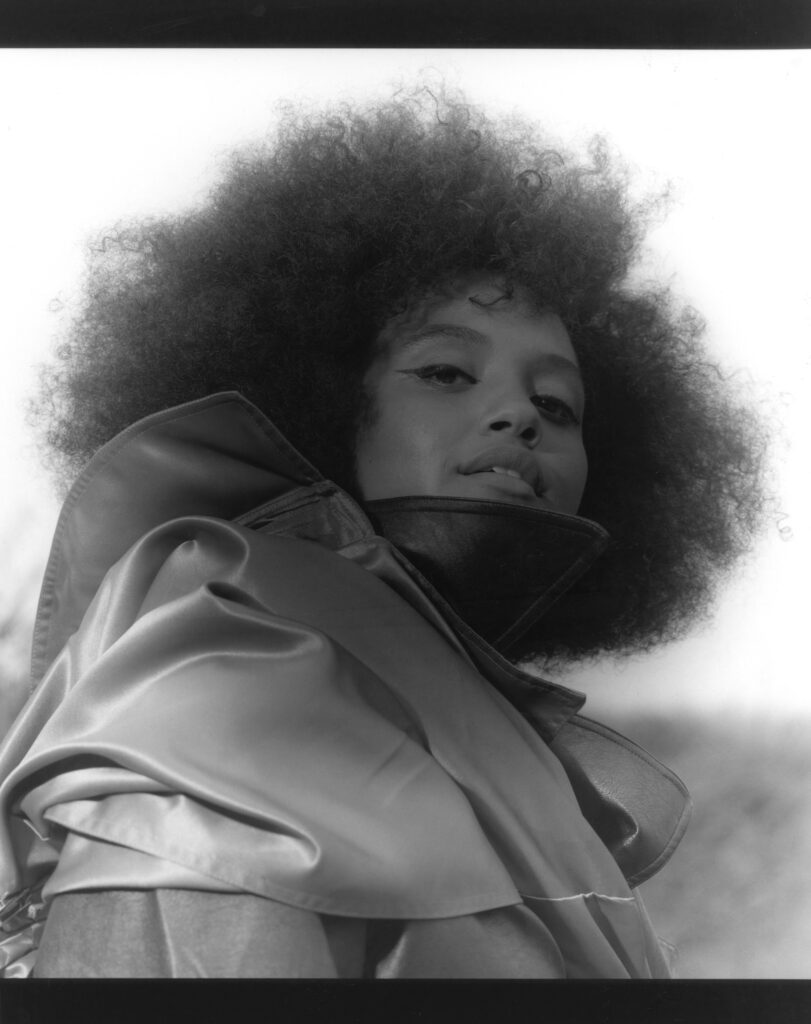
I was surprised that, while Antebellum goes into such detail about white people being abusive to black people, the film is very scrupulous about its language and is deliberate in what epithets it does and does not use. Was the language in the script an issue during the making of the film?
We went back and forth about it. I’m the only person in the movie to use the N word. I saw it as a foreshadowing of reclamation. The way some of us use that word in our daily lives as black people. It was definitely intentional.
You’ve been acting since you were a kid. When did you know that performing was something you wanted to do?
I don’t know what happened really. I feel like I was a baby, a toddler and would be watching Barney, wanting to be there so bad, dancing and singing. I would dissociate a lot by escaping into TV, movies and books, so I think my little big brain was like, I can escape even further away if I was actually there pretending to be those people! I had a huge imagination, I could make fun out of nothing. I don’t remember ever being bored as a kid. I was a lonely kid, but never bored.
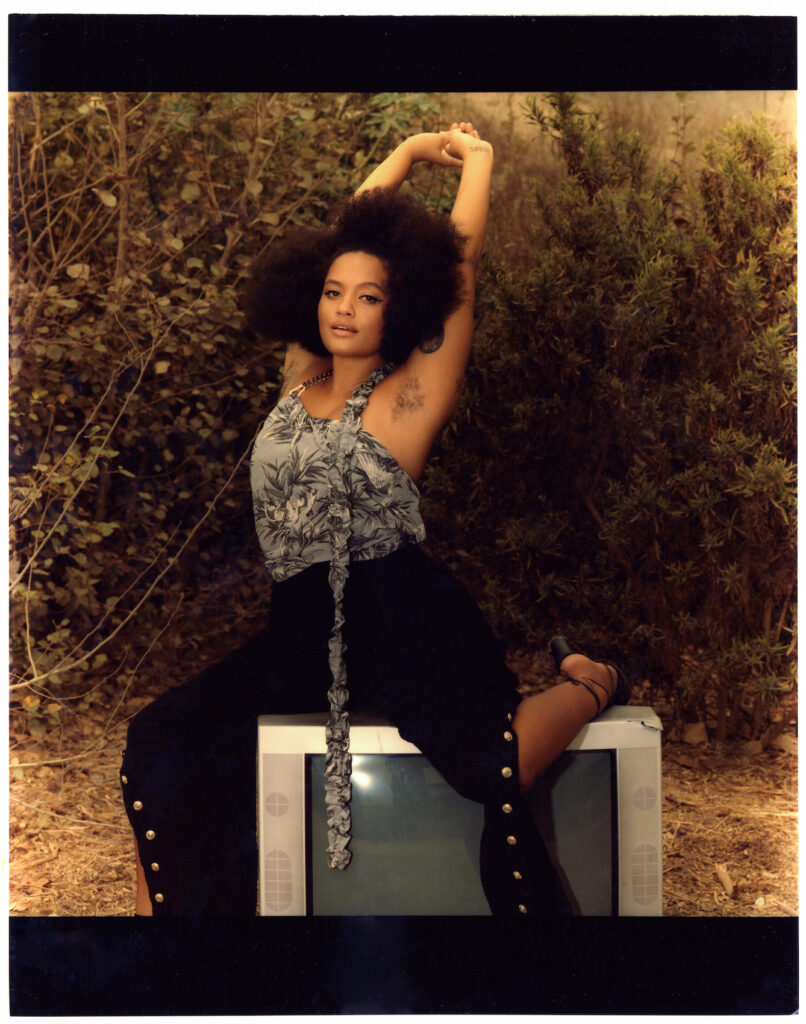
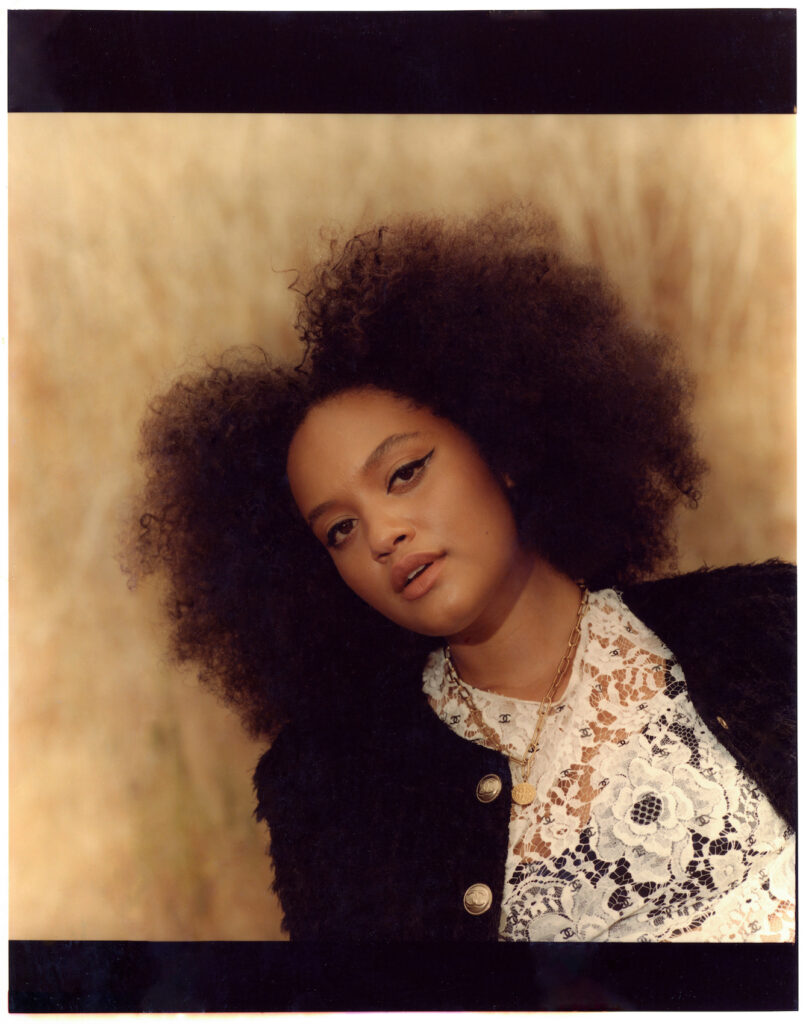
I am friends with Faith Soloway and have interviewed both Faith and Joey Soloway, who seeks to create a supportive atmosphere on the set. Could you talk about your experience on Transparent, and if it contrasted to other sets you have been on?
Ah, I personally had a vivid and transformative experience on the set of Transparent and with Joey, Faith as well. It’s Hollywood and just like any other work place – one person’s experience isn’t a reflection of another. Transparent made me ask myself big questions surrounding my own sexuality and gender identity. I personally felt a buzzing in the air on the set, an involvement that I do crave. The show feels like you’re really inside of these people’s lives because Joey intended for us to lean into the challenge of the vulnerability of portrayal. I appreciate them for it.
Is there an ideal role you would like to play, either someone in a biopic or a character in a project that you would develop on your own?
Of course, but I am going to protect, manifest and work on those ideas for now before I talk about them!
